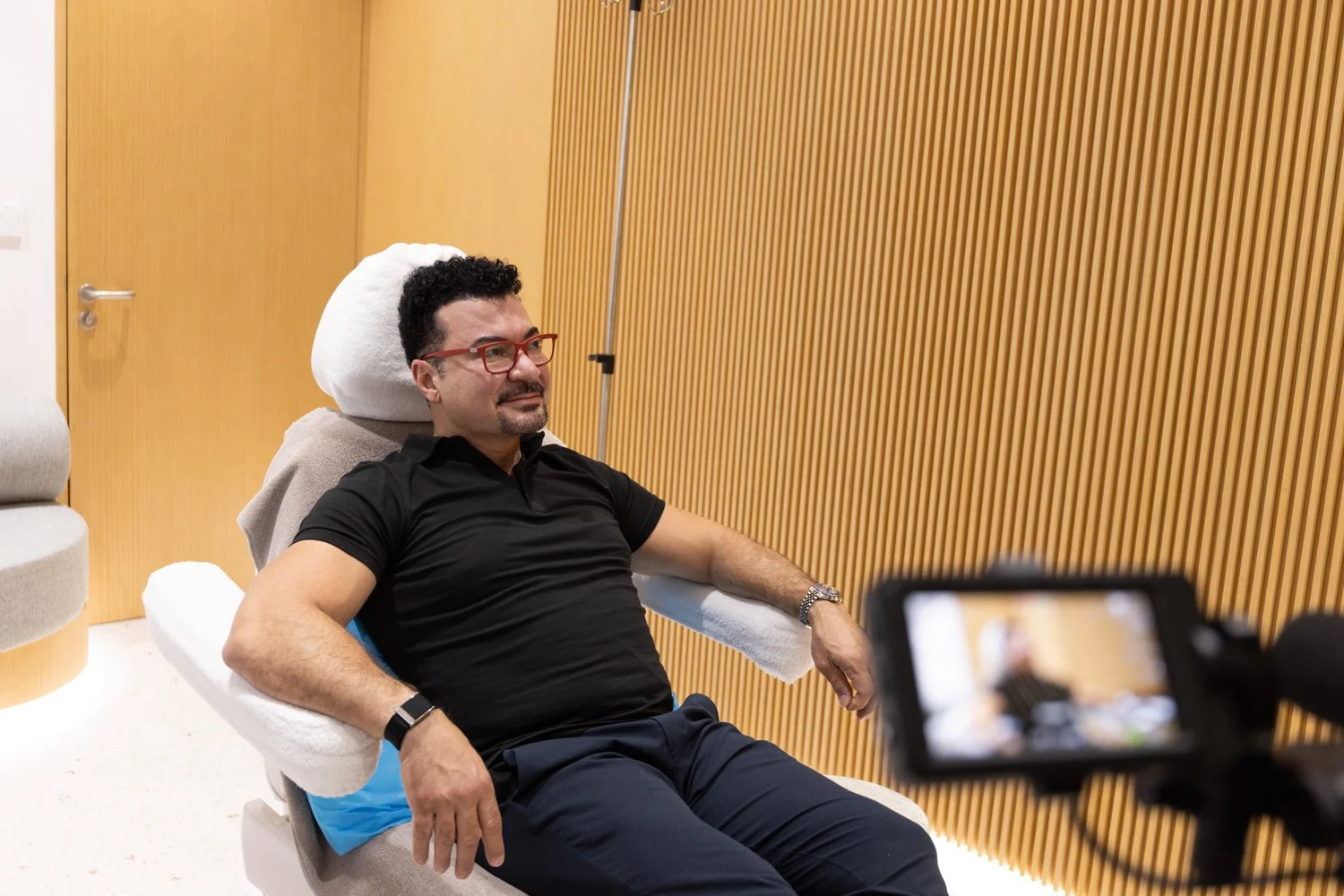

Natalie here has been suffering from cervicogenic headaches, i.e. headaches that originate from the neck, specifically the cervical spine, for years.

Platelet-rich plasma (PRP) therapy is very effective, but it is not a miraculous cure. To get the best results, you need to follow the right care before and after treatment. That means avoiding anti-inflammatory medications, antibiotics, and certain supplements that can interfere with the healing process.

Sara fractured her spine in a car accident over 10 years ago. Since then, she’s lived with constant neck and shoulder pain. PRP gave her relief before, so we administered it again. Our goal: lasting relief and a return to everyday life.

Meet Natalie, my patient of many years, whose life has been transformed through regenerative care. After years of chronic pain, she found relief, not through lifelong medications or endless procedures, but by targeting the root cause with precision therapies like PRP and peptides. This is what healthcare should be: science-backed solutions, faster recovery, and better outcomes. It’s time we stop managing pain and start healing it.

Rita’s been my patient for over 10 years, dealing with chronic back, neck, and now shoulder pain. In the past, cortisone gave her temporary relief, but now we’re taking a regenerative approach using platelet-rich plasma (PRP) injections. In this video, you’ll see her second PRP treatment, where we use both full-spectrum and filtered plasma to target arthritis and tendon damage.

At every point of the medical consultation process, we need to ask: is surgery absolutely necessary? When surgery is unavoidable, like in the case with Lucien in this video, it’s important that a patient is able to return to their normal life afterward. Treatments like PRP therapy help ease patients back into normalcy without the need for follow-up invasive procedures that some doctors might suggest. Unless ABSOLUTELY NECESSARY, let surgeries be your last resort.

In this video, my patient, an athlete, came to me with knee pain in both knees. After doing an MRI, we discovered meniscal tears in both knees, as well as wear in the patellar tendon and some arthritis. We started with PRP therapy, and what finally sealed the deal was injecting the affected areas with activated plasma and eventually peptides.